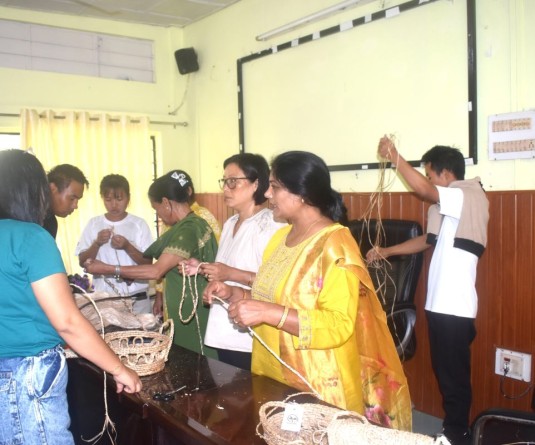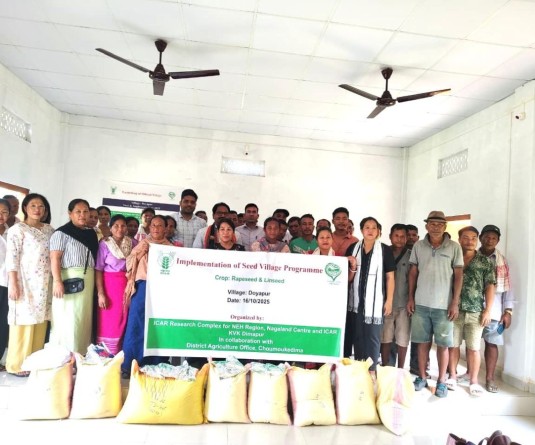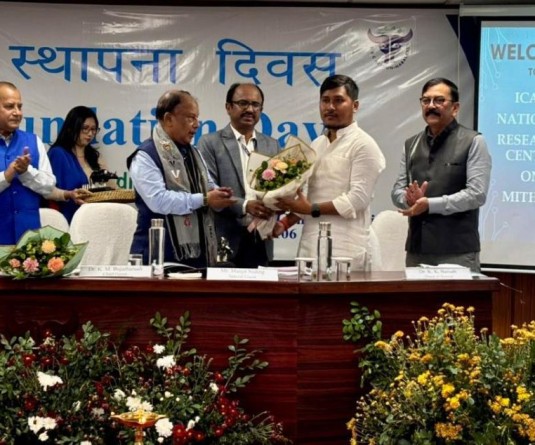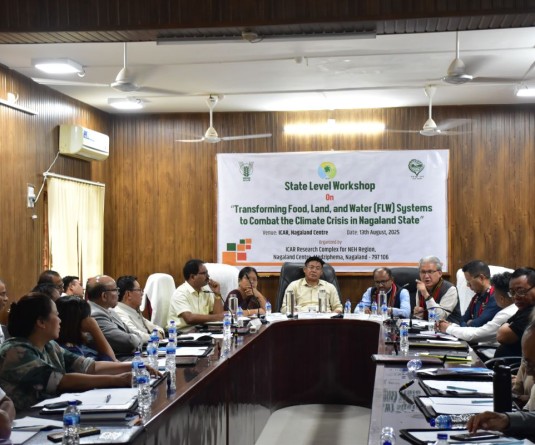Piglets produced by artificial insemination technology
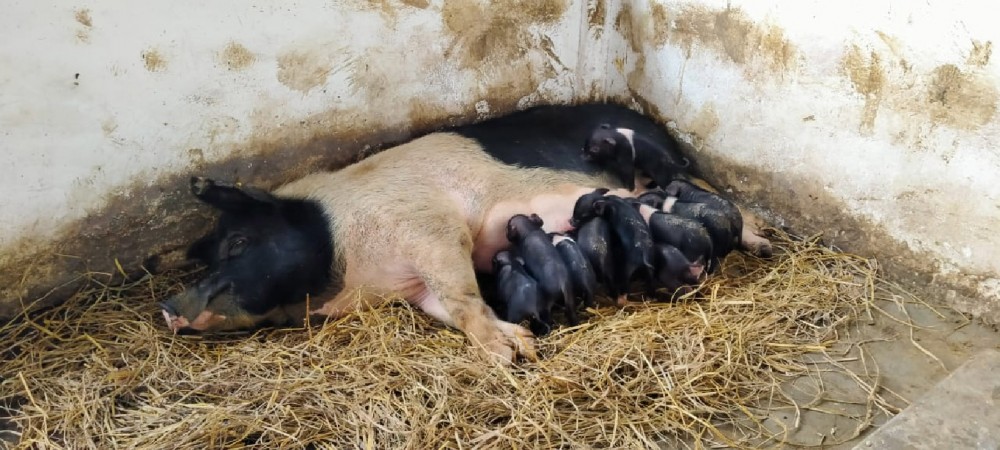
Two of the significant problems for any Naga pig farmer are non availability of good piglets and lack of quality breeding boars in villages. For small breeding farmers the maintenance of service boars is an expensive affair. Sometimes, farmers use a single boar for breeding in a village for two to three years which causes inbreeding. Also the cost of breeding is too high in the field. To solve this problem, ICAR Nagaland Centre Medziphema introduced Artificial insemination (AI) technology in pig in 2012 and has been providing training as well as AI kits to farmers since then. This technology removes the necessity of rearing service boars at the farmers’ end. Higher quality germplasm is also introduced and the field herds are upgraded without purchasing expensive animals from outside the state.
It was at this juncture that Dr Senti, an enterprising veterinarian from Unity Village, Dimapur, with many years of experience in pig breeding, heard of the newly introduced technology being used at ICAR Nagaland centre. He came to ICAR Nagaland centre in May 2017 and had his first introduction to AI in pigs. He did not attend any formal training in AI but learnt on his own following instructions from the AI experts at ICAR. Initially, Dr Senti did AI on his own sows in his farm. For the first couple of times he got poor results with litter sizes as low as 2 and 4 piglets. By this time he was also inseminating sows of other farmers too and with each AI, he kept improving his technique and finally started getting good results. He reports that he once got a litter size with 10 male piglets. The piglets from AI also grew very fast, some even reaching 167 kg in 11 months. Since then he has been a carrying out AI for farmers at reasonable rates and helping popularise AI in pigs.
Dr Senti has carried out over 222 inseminations in 5th Mile, Chümoukedima, Tenyiphe and Niuland with an 80% success rate. He says the average litter size is 9 piglets per farrowing. Dr Senti earns a profit of Rs 4000-5000 monthly from doing AI. Being a veterinarian himself, he understands the cost effectiveness and genetic improvement of field herds through the use of artificial insemination. Inbreeding in pigs in Nagaland is a recognised problem and Dr Senti says the use of AI is helping reduce inbreeding depression for many farmers while improving their herds. This is because the boars maintained at ICAR Nagaland Centre are off springs of Hampshire and Ghungroo. While hampshires are excellent meat animals and fast growing, Ghungroos are very docile and excellent mothers resulting in the best meat animals with respect to male offsprings and superior sows in the female offsprings. These are best suited for the backyard breeder and small farmers.
Dr Senti says that many farmers were apprehensive at first but the results spoke for themselves and many farmers started approaching him after hearing about AI from other farmers. Many pig farmers have started rearing breeding sows after experiencing the convenience and advantages of AI over traditional breeding. It is worth mentioning here that hundreds of farmers avail AI facilities from ICAR Nagaland Centre. And for those who are not able to do so, professionals like Dr Senti are available for help.
Dr Senti says that the only disadvantage in AI is the 20% conception failure. Conception failure can arise from many factors including a mistimed AI and use of long stored semen. It is vital to perfectly time the AI during the heat period otherwise the conception could fail or the litter size may be small. However many Nagas request AI only at the last hours of heat at which the fertility is already reduced. It is important to inform the inseminator on the first sign of heat. Also many farmers opt for AI after repeated breeding with boars. The farmers must understand that such sows already have reproductive problems and AI is not the issue. AI must be done on first day of heat in gilt and second day in adult sow.
While a few farmers perform AI personally, only a few people like Dr Senti are there who are helping bridge the gap between farmers and the scientists. The profit from AI is not so much for him but the satisfaction of being part of a revolutionary technology in piggery is high. After being a service boar provider for 7-8 years, Dr Senti has switched to AI and says that Nagas must opt for Artificial Insemination which is highly beneficial for the farmers. The technology is available at ICAR Nagaland Centre throughout the year.
Article contributed by Mahak Singh, R Talimoa Mollier, Nungshi Pongener and D J Rajkhowa, ICAR Research for NEH Region, Medziphema


